AI and Automation in Recruitment: Discussions might include the use of artificial intelligence and automation tools in sourcing, screening, and matching candidates, and the impact on recruitment efficiency.
AI and automation have significantly transformed the recruitment landscape, offering innovative solutions to streamline processes, enhance efficiency, and improve decision-making. Here are some key areas where AI and automation are making an impact in recruitment:
- Candidate Sourcing and Screening:
- AI-powered tools can sift through large volumes of resumes and applications to identify candidates who closely match job requirements. Natural Language Processing (NLP) helps analyze resumes and extract relevant information.
- Automated screening processes can assess candidates based on predefined criteria, such as skills, experience, and qualifications, thereby reducing manual effort and bias.
- Talent Pool Management:
- AI can help recruiters manage talent pools more effectively by segmenting candidates based on skills, experience, and other criteria. This allows for faster access to suitable candidates when new positions open up.
- Predictive analytics can also help in identifying candidates who are likely to be open to new opportunities or who fit well culturally with the organization.
- Candidate Engagement and Experience:
- Chatbots powered by AI can engage with candidates at various stages of the recruitment process, answering FAQs, scheduling interviews, and providing updates.
- Personalized communication through AI-driven insights can enhance the candidate experience by delivering relevant information and maintaining engagement.
- Interviewing and Assessment:
- AI can facilitate virtual interviews through platforms that use facial recognition and sentiment analysis to gauge candidate responses and behavior.
- Automated assessment tools can administer tests and quizzes to evaluate technical skills, cognitive abilities, and personality traits.
- Decision Support for Hiring:
- AI algorithms can analyze data from various sources, including resumes, assessments, and interviews, to provide insights and recommendations to recruiters and hiring managers.
- Machine learning models can predict candidate success based on historical data, improving the accuracy of hiring decisions.
- Onboarding and Integration:
- AI can assist in the onboarding process by providing new hires with personalized training plans, access to resources, and integration into the company culture.
- Automation can handle administrative tasks related to paperwork, benefits enrollment, and compliance, allowing HR professionals to focus on more strategic aspects of onboarding.
Overall, AI and automation in recruitment are enabling organizations to optimize their hiring processes, reduce time-to-hire, improve candidate quality, and enhance the overall recruitment experience for both candidates and hiring teams. However, it’s crucial to balance automation with human touchpoints to maintain a personalized and empathetic candidate experience.
Remote Hiring and Virtual Recruitment: Blogs might discuss strategies and tools for conducting interviews and onboarding processes remotely, as well as the challenges and benefits of remote hiring.
- Digital Platforms and Tools:
- Virtual recruitment relies heavily on digital platforms such as video conferencing tools (e.g., Zoom, Microsoft Teams), applicant tracking systems (ATS), and virtual whiteboarding tools for collaborative sessions.
- These platforms facilitate seamless communication between recruiters, hiring managers, and candidates, enabling interviews, assessments, and onboarding to be conducted remotely.
- Expanded Talent Pool:
- Remote hiring allows organizations to access a broader talent pool beyond their geographical location. This can lead to increased diversity, as well as the ability to find candidates with specific skill sets that may be scarce locally.
- Candidates also benefit by being able to apply for positions regardless of their physical location, opening up more opportunities for remote and flexible work arrangements.
- Adaptation of Recruitment Processes:
- Recruitment processes have evolved to accommodate remote environments. This includes adapting interview techniques, conducting virtual skills assessments, and ensuring candidates have a smooth experience despite not being physically present.
- Organizations may need to revise job descriptions to emphasize remote work expectations and desired skills like self-motivation, communication skills, and proficiency with remote collaboration tools.
- Candidate Experience and Engagement:
- Maintaining a positive candidate experience in a remote hiring process is crucial. This involves clear and timely communication, providing necessary information about the role and the company, and ensuring candidates feel valued and informed throughout the process.
- Virtual recruitment also requires proactive engagement with candidates through virtual tours, video messages from team members, and virtual meet-and-greet sessions to showcase company culture and values.
- Challenges and Considerations:
- Remote hiring introduces challenges such as potential technical issues during virtual interviews, assessing cultural fit remotely, and ensuring data security and privacy compliance.
- Organizations must also consider the implications for employee onboarding, integration into remote teams, and providing adequate support and resources for remote employees.
- Best Practices and Future Trends:
- Best practices for remote hiring include establishing clear communication channels, setting expectations early in the process, leveraging video interviews effectively, and incorporating collaborative tools for assessment and decision-making.
- Future trends may include further integration of AI and automation in virtual recruitment processes, enhanced virtual reality (VR) experiences for remote onboarding, and ongoing refinement of remote work policies and practices.
Overall, remote hiring and virtual recruitment present opportunities for organizations to access a diverse talent pool and adapt to changing work environments. By leveraging digital tools effectively and prioritizing candidate experience, organizations can successfully navigate and optimize remote recruitment processes.
Technology in Recruitment: The impact of AI, machine learning, and automation on recruitment processes, such as resume screening, candidate matching, and chatbot interactions.
Technology has significantly transformed the recruitment landscape, offering innovative solutions to streamline processes, enhance efficiency, and improve decision-making. Here are some key aspects where technology plays a crucial role in recruitment:
- Applicant Tracking Systems (ATS):
- ATS software automates the recruitment process by managing job postings, tracking applications, and storing candidate information. It helps recruiters efficiently manage large volumes of applications and streamline the hiring workflow.
- AI and Machine Learning:
- AI-powered tools are used for resume parsing, candidate matching, and predictive analytics. Machine learning algorithms can analyze candidate data to identify top talent based on skills, experience, and cultural fit, thereby improving the quality of hires.
- Automated Sourcing Tools:
- Tools utilizing AI and automation can scour job boards, social media platforms, and other sources to proactively identify and attract passive candidates who match specific job criteria. This reduces manual effort in candidate sourcing.
- Video Interviewing and Virtual Assessment Tools:
- Video interviewing platforms enable remote interviews, allowing recruiters to assess candidates’ communication skills, professionalism, and cultural fit. Virtual assessment tools may include simulations, coding challenges, and psychometric tests conducted online.
- Chatbots and Virtual Assistants:
- Chatbots engage with candidates on websites or via messaging apps, providing instant responses to FAQs, scheduling interviews, and collecting preliminary information. Virtual assistants streamline communication and enhance the candidate experience.
- Data Analytics and Reporting:
- Recruitment analytics tools provide insights into key metrics such as time-to-fill, cost-per-hire, source effectiveness, and candidate conversion rates. Data-driven insights help recruiters make informed decisions and optimize recruitment strategies.
- Mobile Recruiting Solutions:
- Mobile-friendly career sites, applications, and communication channels cater to candidates who prefer accessing job opportunities and interacting with recruiters via smartphones and tablets. Mobile recruiting enhances accessibility and responsiveness.
- Collaborative Hiring Platforms:
- Cloud-based platforms facilitate collaboration among hiring teams, allowing them to share feedback, evaluate candidates, and make collective hiring decisions in real-time. Such platforms improve communication and transparency throughout the hiring process.
- Blockchain for Verification and Security:
- Blockchain technology is being explored to securely verify candidate credentials, certifications, and work history. It offers transparency, reduces fraud, and enhances trust in candidate information during the recruitment process.
- Virtual Reality (VR) and Augmented Reality (AR):
- VR and AR are used for immersive experiences in recruitment, allowing candidates to virtually tour workplaces, participate in simulations, or undergo training exercises. These technologies provide a glimpse into company culture and work environments.
Overall, technology continues to revolutionize recruitment by optimizing processes, improving candidate experiences, and enabling more data-driven decision-making. Embracing these technological advancements can help organizations stay competitive in attracting and retaining top talent.



